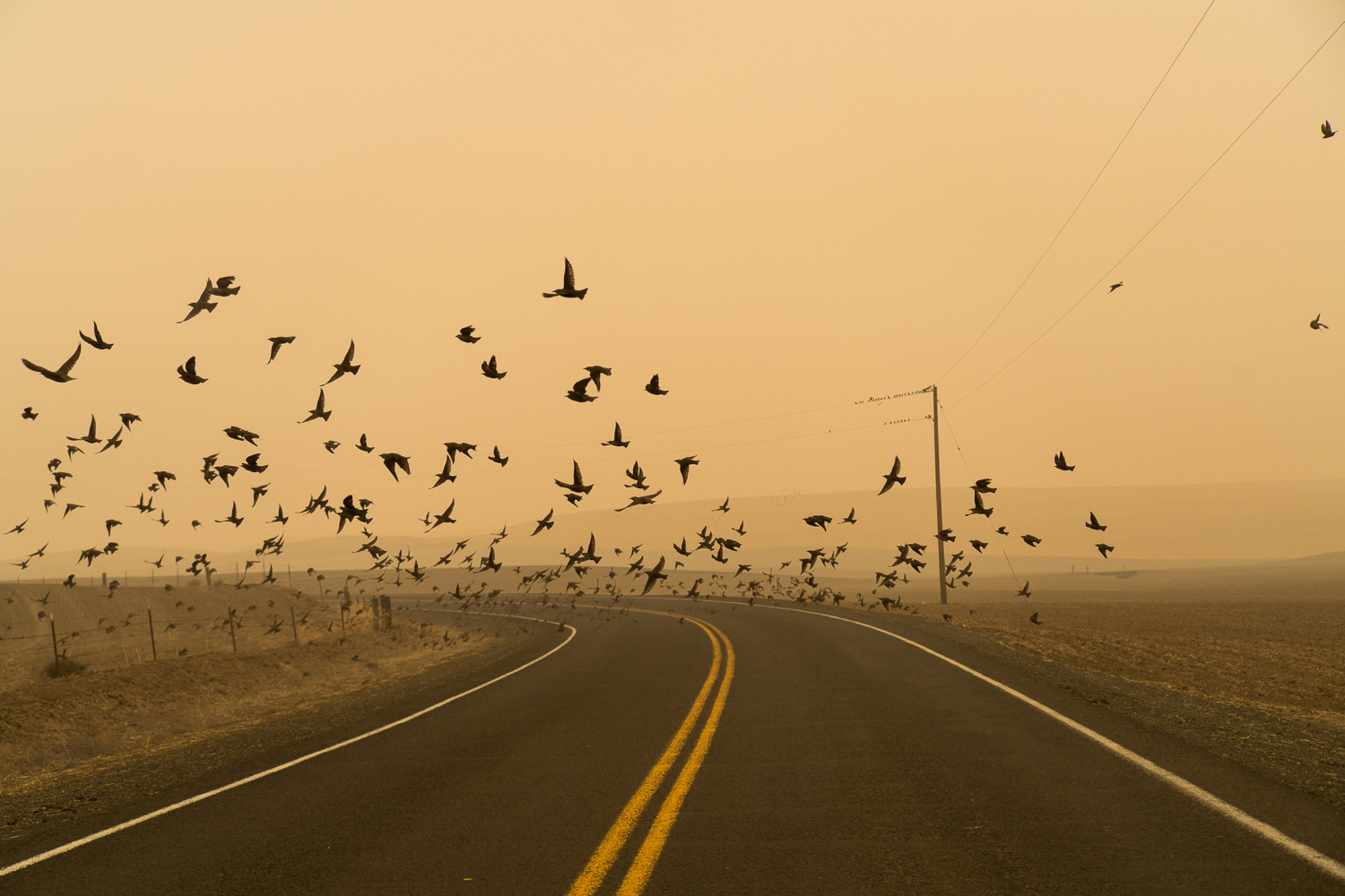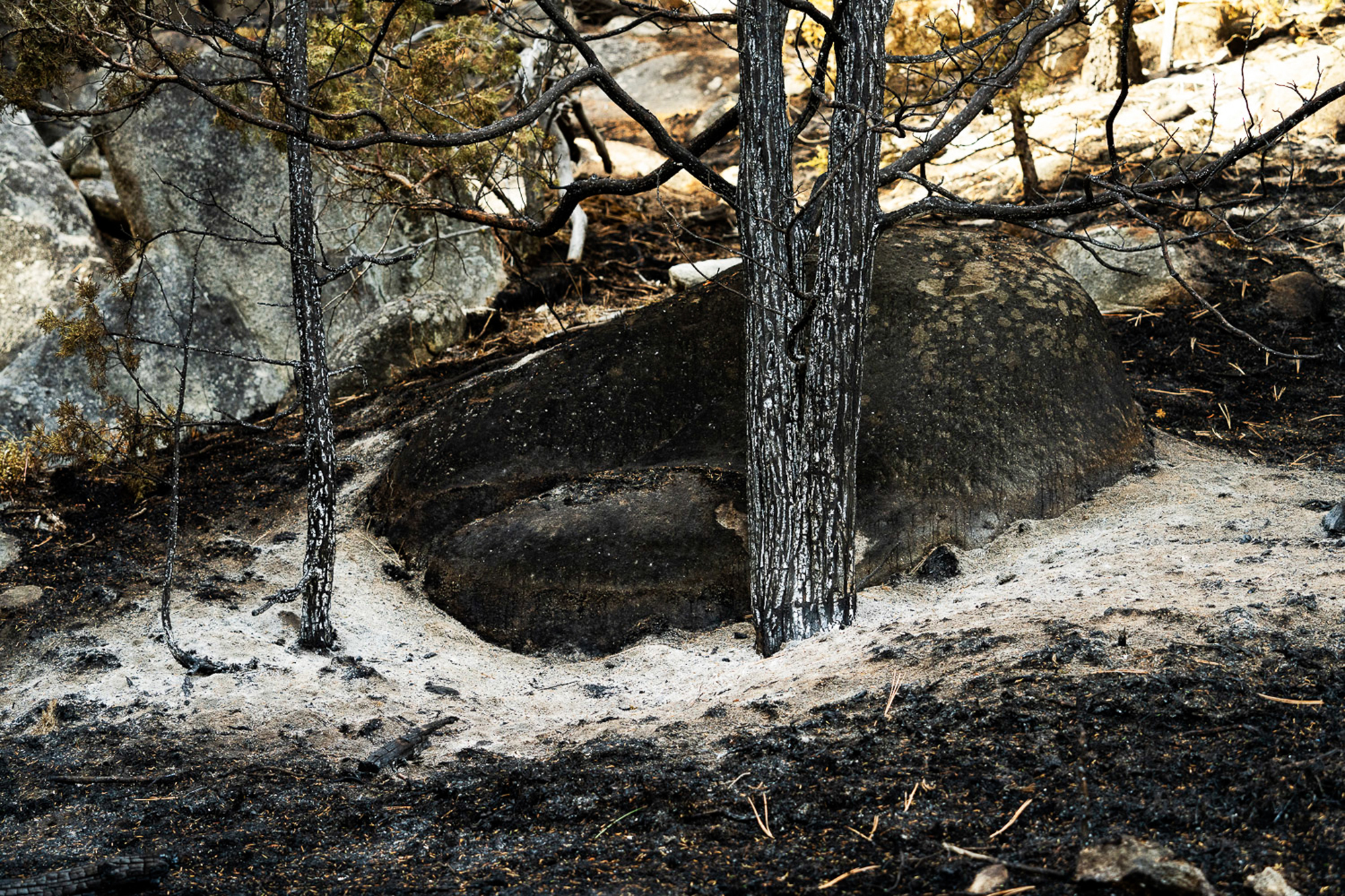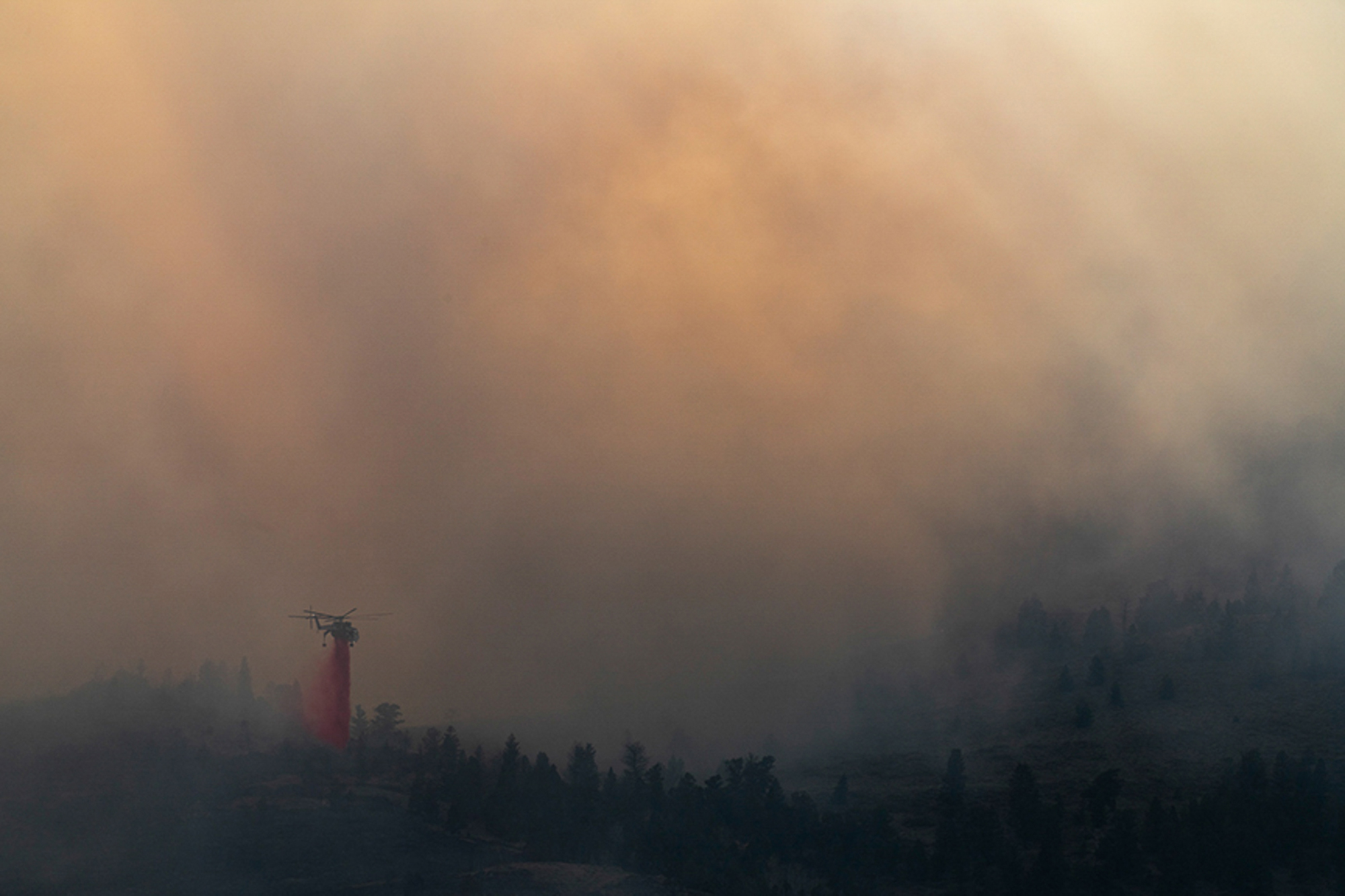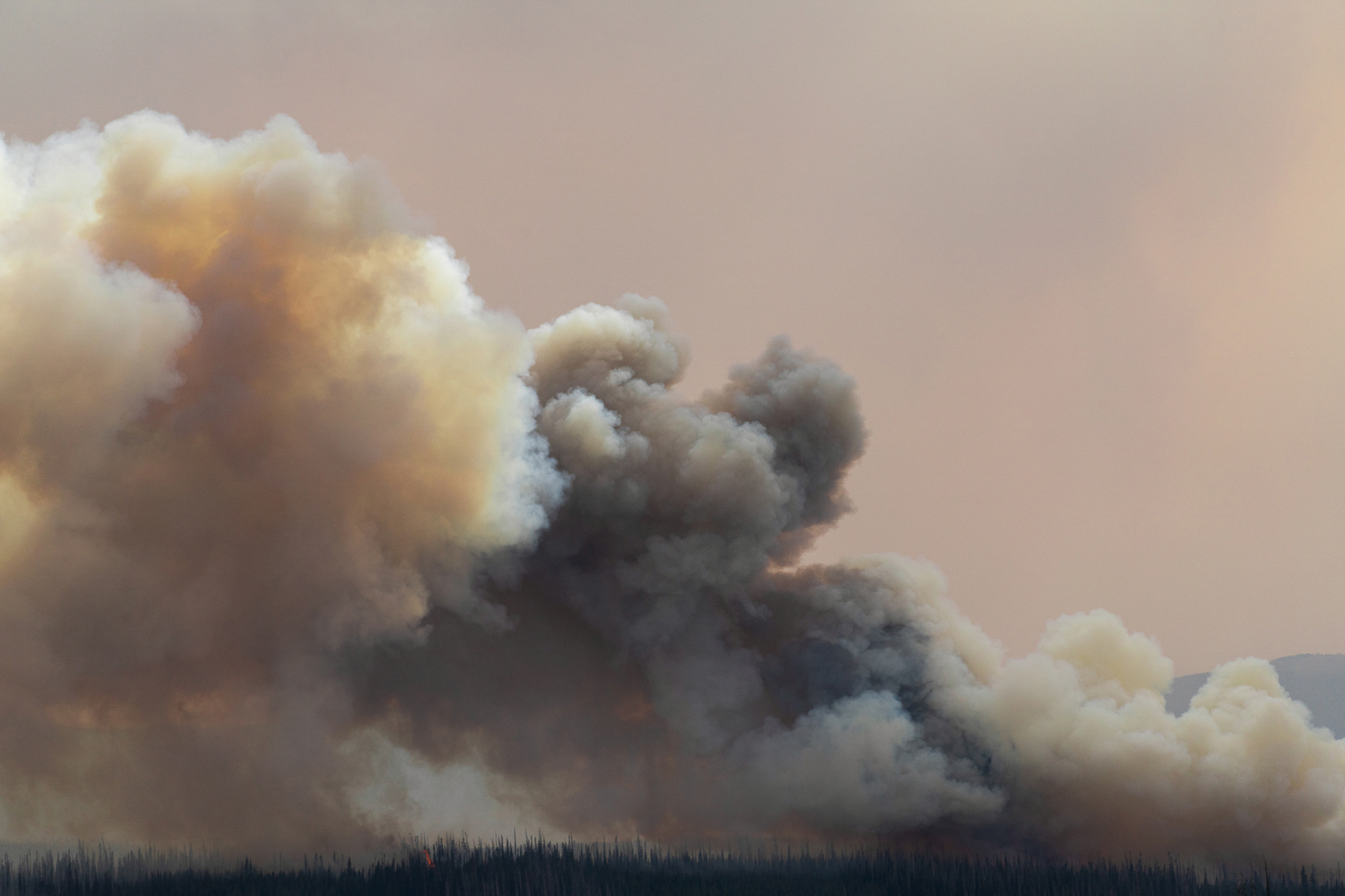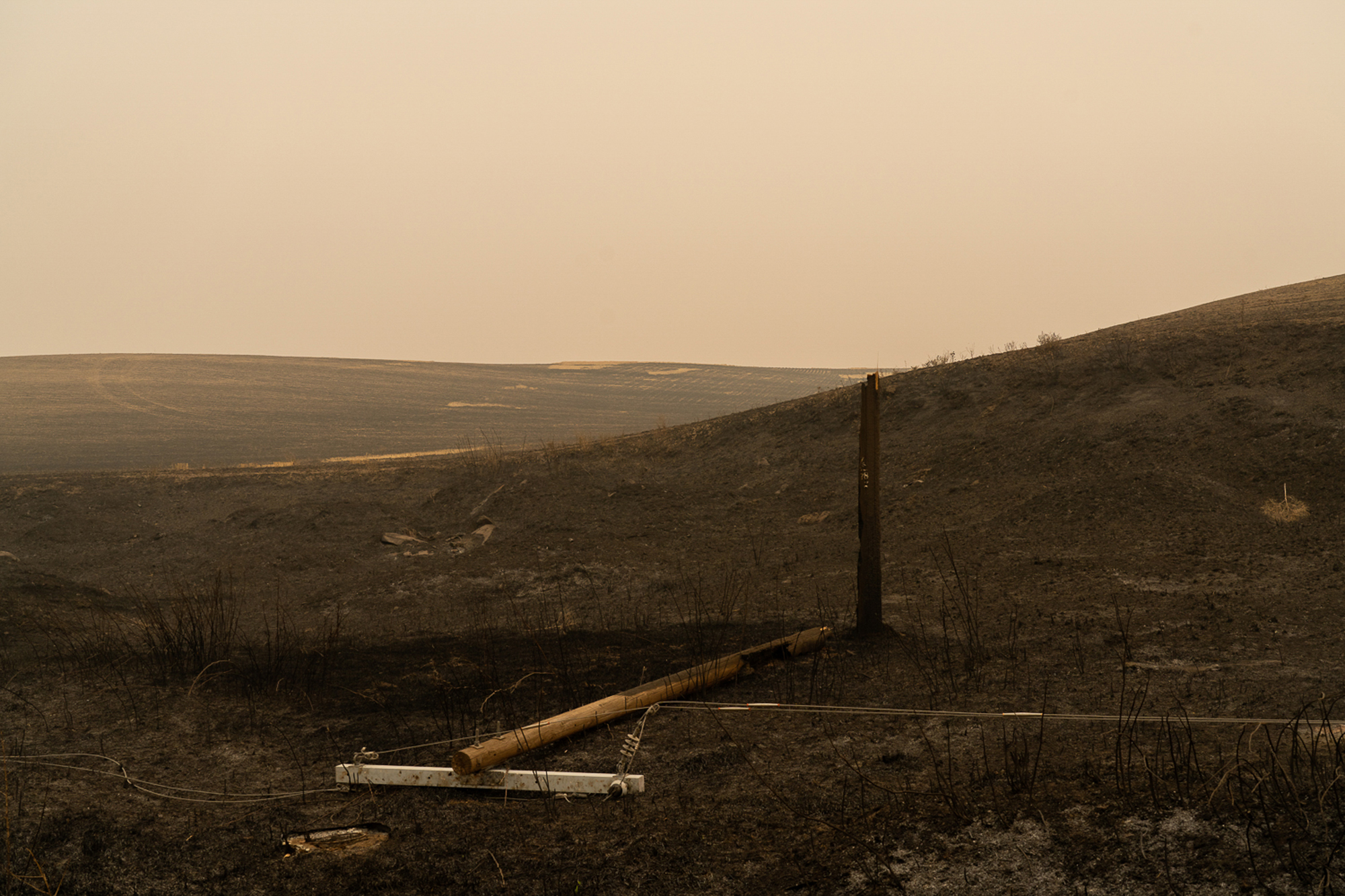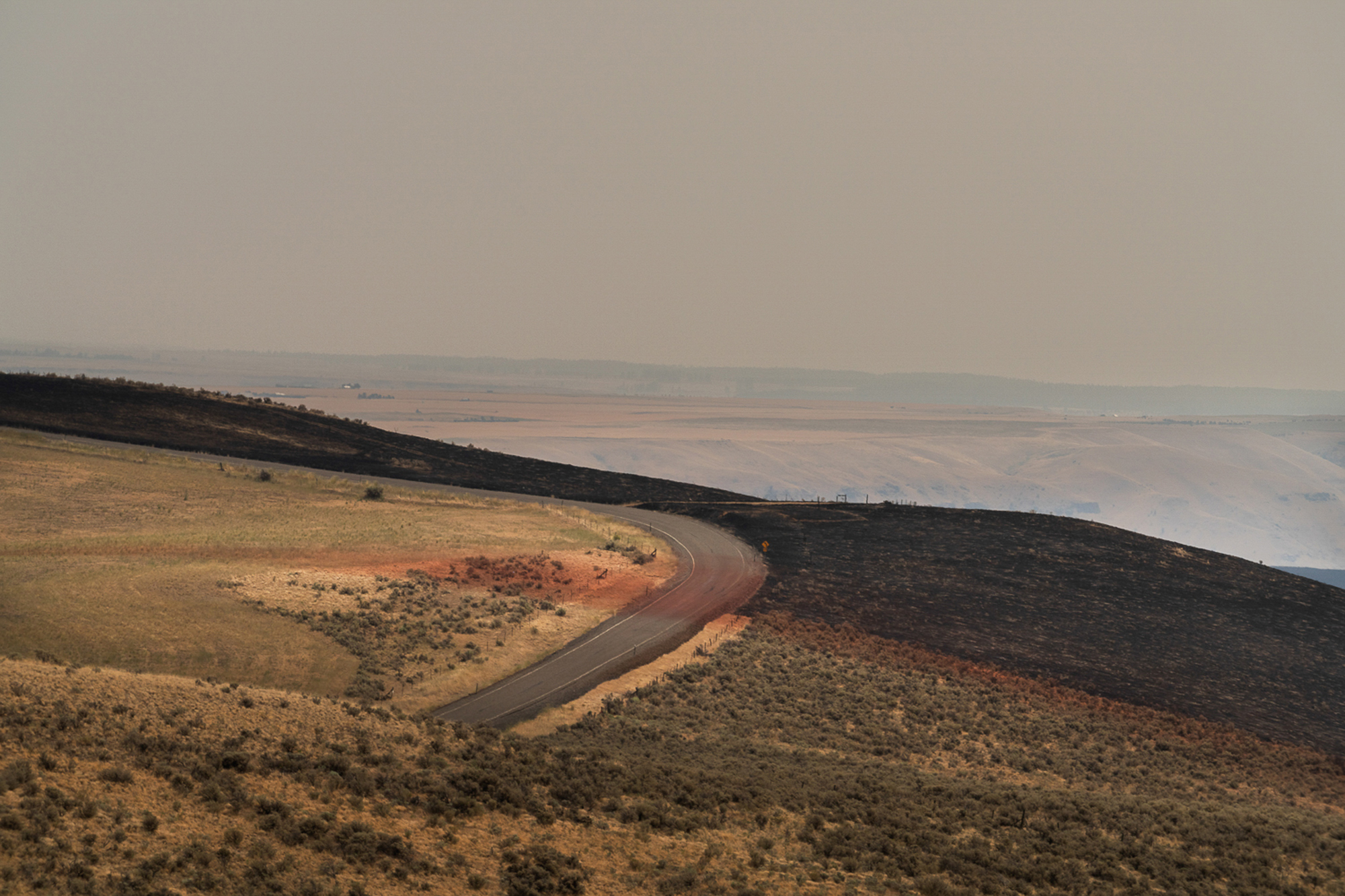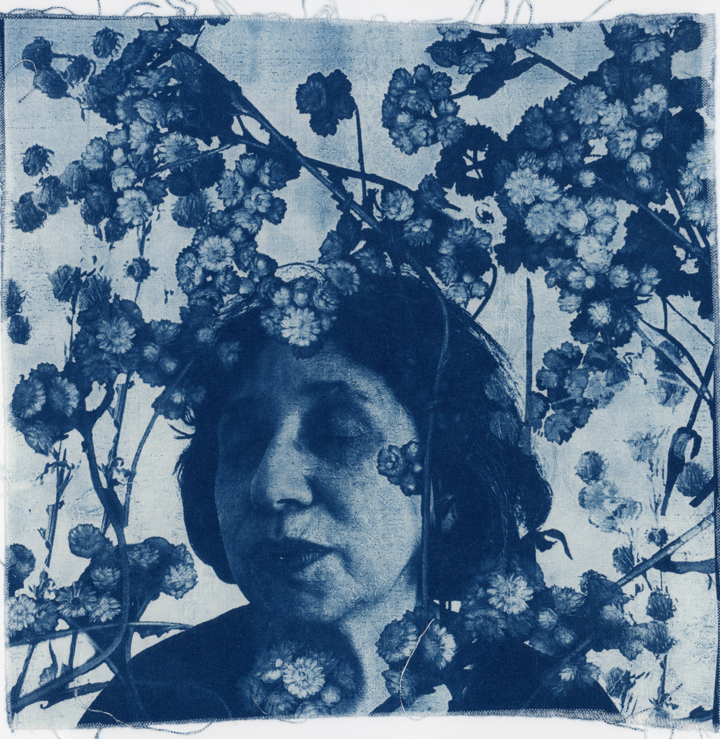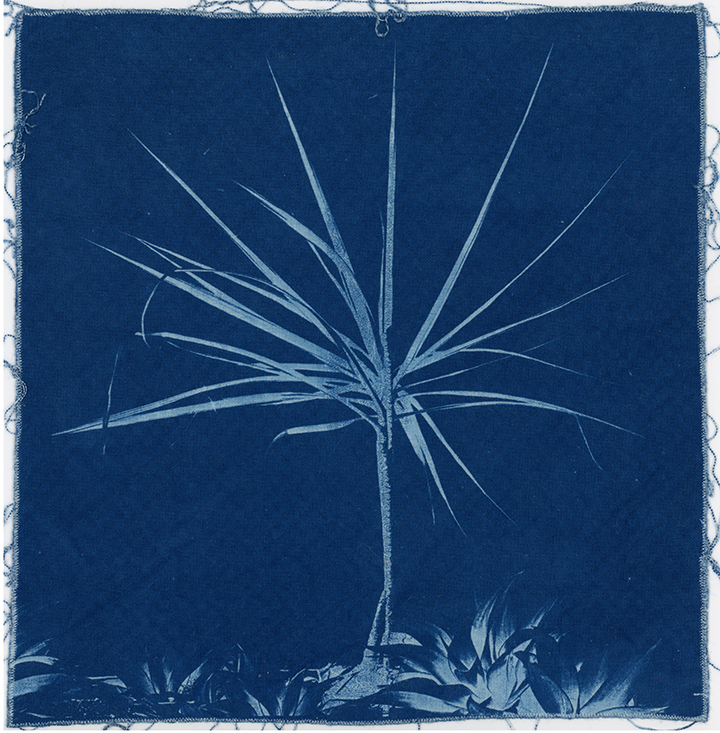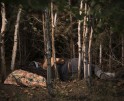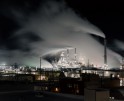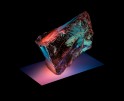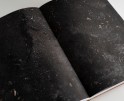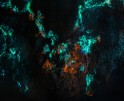Earth Month Photographers on Photographers: Leonor Jurado in Conversation with Jessica Hays
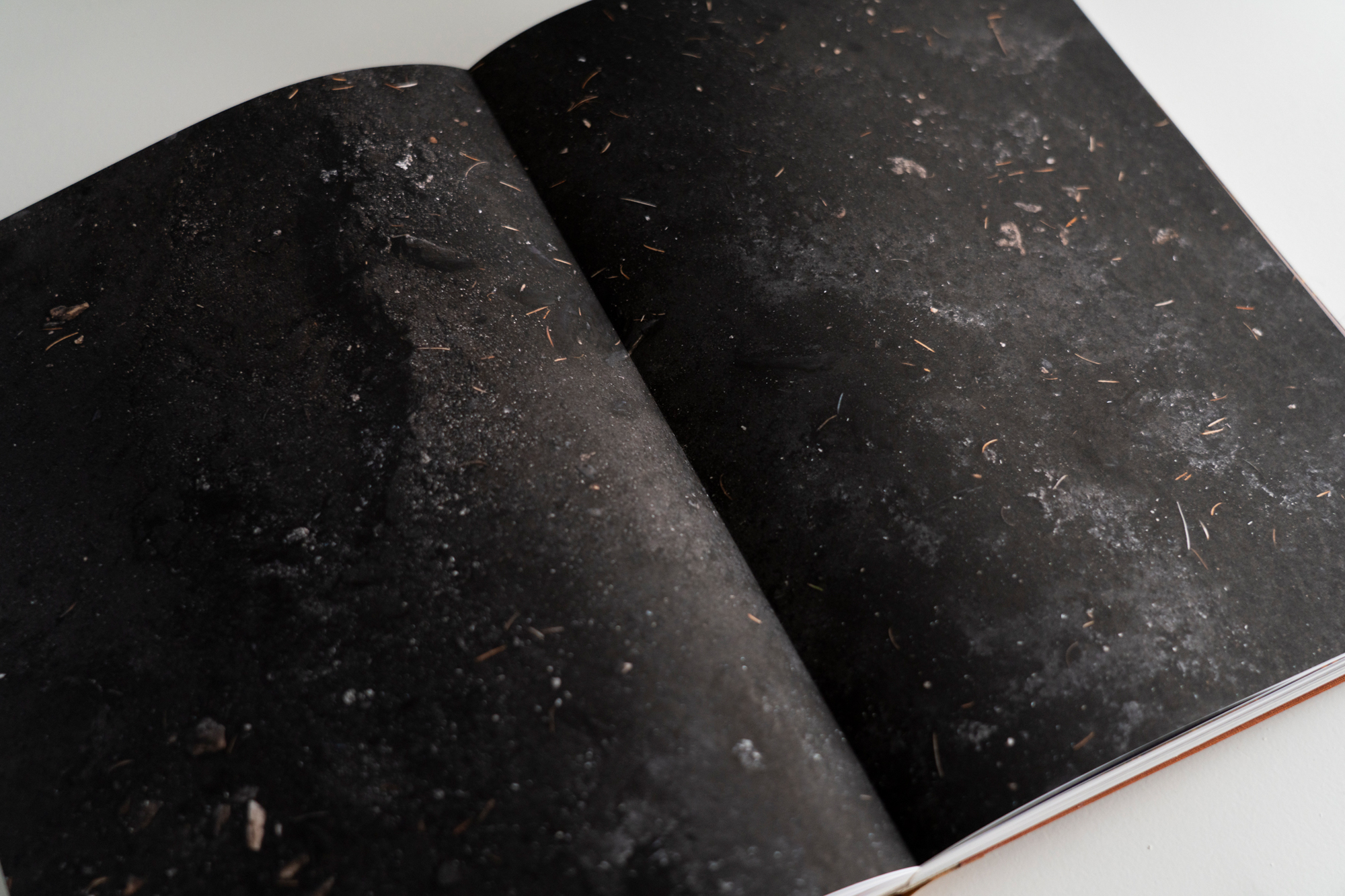
©Jessica L. Hays, Black Earth from the series The Sun Sets Midafternoon, Handmade artist book maquette, 2023.
In expanding our celebration of Earth Week, Earth Month: Photographers on Photographers will focus on the work of Eco.Echo Art Collective, a group of international artists deeply concerned with the well-being of our planet beyond human needs. The group’s concerns are climate change and anthropogenic activities’ global impact. Driven by an appreciation for the natural world’s beauty, diversity, and wonder, they believe in the inherent worth of all living beings regardless of their instrumental utility in fulfilling human desires. This week, members of Eco.Echo Art Collective will take time to reflect on each other’s work and how the transformative potential of photography can engage in challenging conversation and affect social change around ideas of humans and our surroundings.
Today, member Leonor Jurado will share her discussions with member Jessica Hays.
This is an opportunity for me to think deeply about photography in times of environmental crisis threatening the sustainability of life in all forms. I am in awe of the images presented by some of our members, but Jessica Hays’ photographs of wildfires hit a nerve. Perhaps it was something I had not worked out. In 2020, I was living 30 miles east of downtown LA. Fires raged in California, smoke covered the skies, and orange light illuminated it all. I remember being afraid.
The climate crisis is becoming increasingly tangible, permeating fear in humans, and fostering a sense of anxiety and sorrow as we bear witness to environmental catastrophes. Montana-based photographer Jessica L. Hays has been a firsthand observer of this unfolding event, having witnessed the trauma of wildfires; her photographs poetically capture the essence of being amidst the flames.
On the occasion of Earth Week, I met with Jessica to reflect on her series “The Sun Sets Midafternoon” (2020-2023) which was first exhibited at Old Main Gallery in Bozeman, MT in 2022, and “Horizon Line” debuted in 2023 as part of her thesis exhibition Body, Breeze, Earth, shown at the 5th Floor Gallery, Student Center in Columbia College, Chicago IL.
We begin this article with the image Murmuration (2020) from her series “The Sun Sets Midafternoon,” in which a flock of birds takes flight in the middle of an empty road. The horizon is blurred with smoke, representing the common experience of fleeing from disaster, a metaphor for a path forward even in the light of this devastation.
By visually narrating the scenes of devastation and resilience, Hays’ photographs of wildfires capture a sense of hope and shared humanity in the face of adversity. She works around the concept of ´solastalgia´, which describes the emotional impact caused by environmental changes and its connection with human existence. I embrace this feeling because it helps me understand the impact of climate change on mental health.
In Jessica’s exhibitions, the texts that explain the images provide a deeper meaning to the photographs. These words act as a means to explore the psychological weight of loss. Careful titles and statements draw attention to the connections between the human psyche and its relationship to the land.
For instance, Jessica states: “My upbringing was deeply intertwined with fire as a constant presence. Every August, smoke filled the air for weeks, a familiar part of life. However, as wildfires intensified across the Western region, a sense of unease grew within me. The pivotal moment that sparked my project was a fire in the foothills of my hometown. I found myself unable to turn away, not just observing the flames but also recognizing the profound impact it had on everyone in our community. Witnessing the town come together, with basic supplies selling out as people rallied to support the firefighters, inspired me to take action. Alongside a childhood friend, we organized a fundraising art auction, driven by a shared determination to make a difference.”
When thinking about how her work documents the American West, she explains, “Throughout the fall of 2020, I dedicated much of my time to being on the frontlines of wildfires that ravaged Oregon, with multiple blazes simultaneously burning, in places where I have strong connections. I also witnessed Wyoming’s second-largest fire in history and documented fires in Colorado, including the Cameron Peak Fire and the Mullen Fire. My focus extended to fires impacting friends and acquaintances, prompting visits to areas post-incident to capture the aftermath. This led me to photograph wildfires in nearly every western state in the United States, where I have documented fire aftermath within burn perimeters and active wildfires.”
Wildfire research plays a crucial role in this photographic work. Jessica gathers as much information as she can from emergency databases to understand critical details about the wildfire, such as its origin, growth, weather conditions, incident command structure, involved fire teams, road closures, and access permissions. “It is essential to ensure that I can navigate the fire-affected areas responsibly without interfering with firefighting operations. My primary focus is always on not causing disruptions to the firefighters working on the ground. During my documentation, there are instances where I capture images from outside the burn perimeter accessible to civilians. In other cases, I coordinate access to closer vantage points, typically closer to the fire’s starting point rather than its active front. The dynamic nature of wildfires necessitates continuous research; even as I leave a site, conditions can evolve rapidly. After days onsite, I dedicated my nights to studying incident reports, especially for ongoing fires. While the level of research may vary depending on the fire’s status, the evolving nature of wildfires demands constant vigilance and adaptation to capture the changing landscape accurately”, she states.
Hays’ practice extends beyond traditional photography, encompassing alternative processes, handmade artist books, video, and experimental techniques. In her installations, she explores the contrasts between active burning and the aftermath, reflecting the accelerated devastation caused by climate change. By displaying large images of pyrocumulus clouds as backdrops, she sets the stage for framed photographs, creating a narrative flow from chaos to the aftermath. Text is critical, drawing the viewer closer and offering a more intimate connection to the personal narratives of climate change. This interplay between image and text provides multiple entry points for viewers to engage with the broader themes and stories within the artwork.
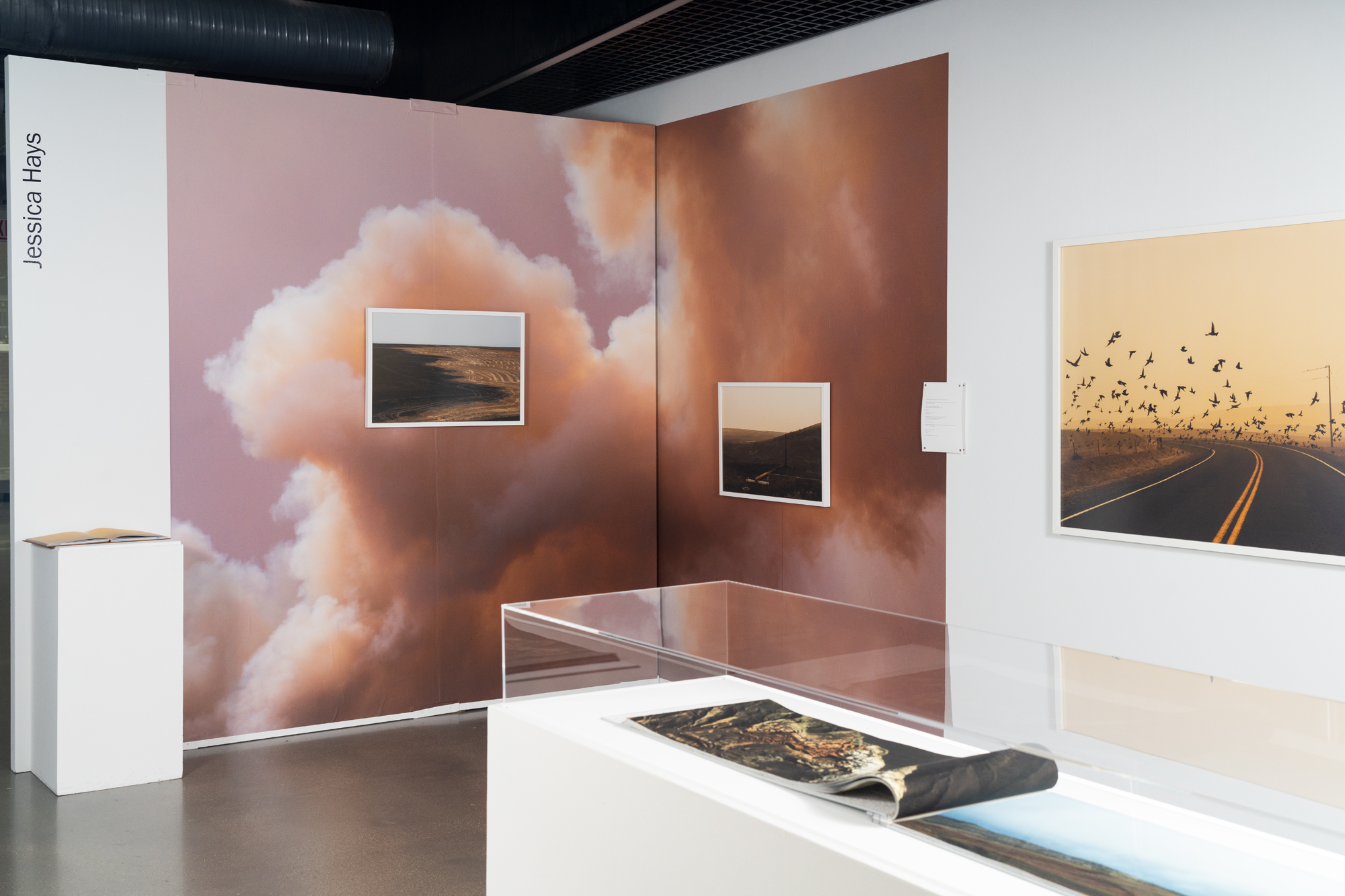
© Jessica L. Hays, Installation shot of “The Sun Sets Midafternoon” and “Horizon Line” at The Center Galleries, Columbia College, Chicago, May 9 – May 20, 2023
“Horizon Line” (2023) is a monumentally scaled handmade book that explores the concept of belonging to a place. The immense scale of the book, which measures about five feet long when opened, invites the viewer to physically interact with the images. It requires the reader to engage with the passing of the pages and move their bodies to fully experience the connection to the landscapes depicted. The book is a complementary piece to “The Sun Sets Midafternoon,” deepening our relationship with the land.
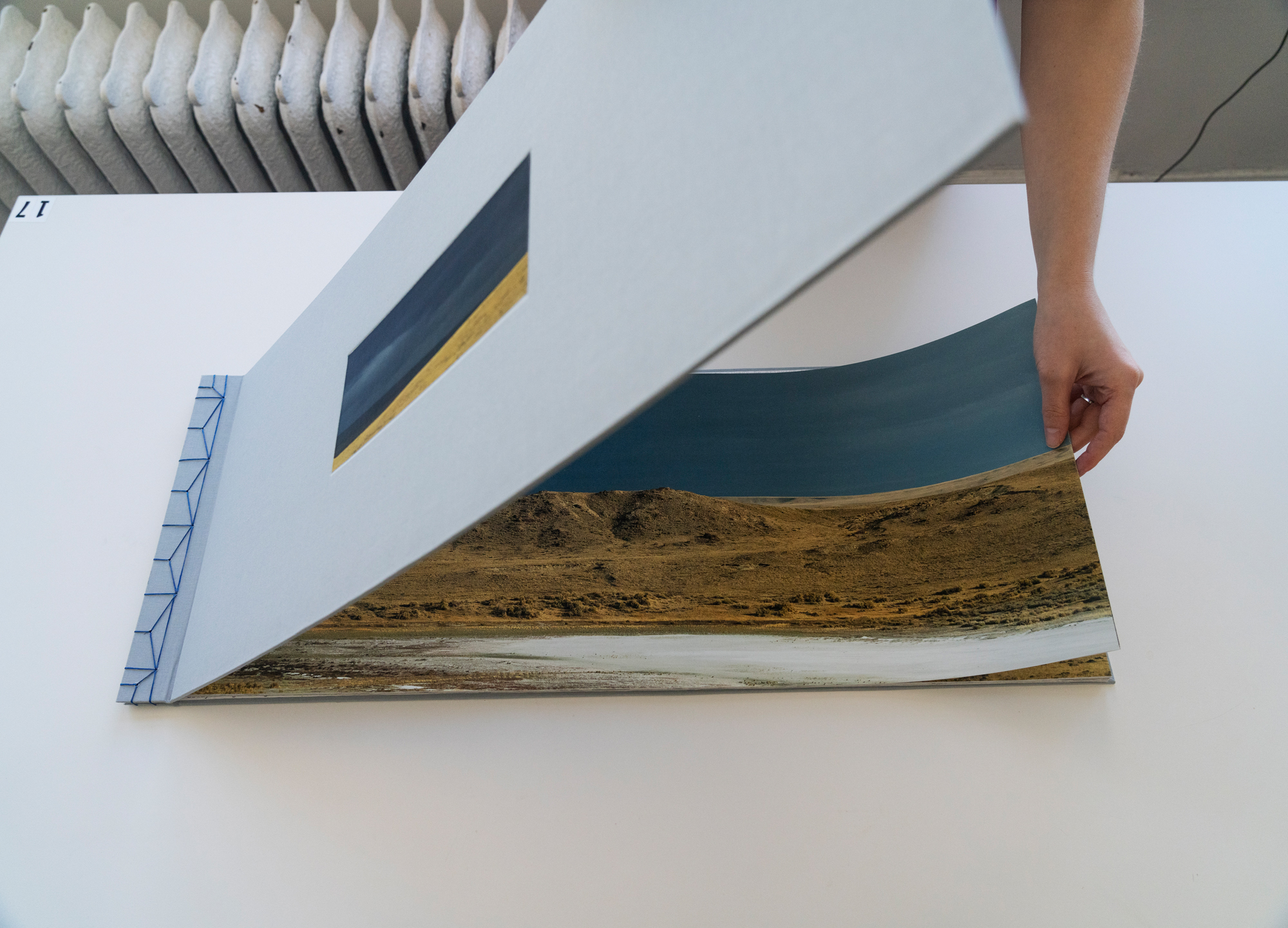
© Jessica L. Hays, Horizon Line is a monumentally scaled handmade artist book. Edition of 7 + 2AP, 2023 (https://youtu.be/249jsrtDBVw?si=p0pszytFFfxXLSRU)
In addition, the book includes annotated maps, redacted imagery, and personal photographs; elements that emphasize the deep sense of belonging and reverence Jessica feels towards the land, viewing herself as part of the terrain rather than an external observer. Her work affirms that we stand full of grief, as expressed in the poignant statement in “Horizon Line”: “To love the land in these times is to always be grieving.” A statement centered on love, respect, and a connection to our landscapes, highlighting the enduring bond and reverence for the living world.
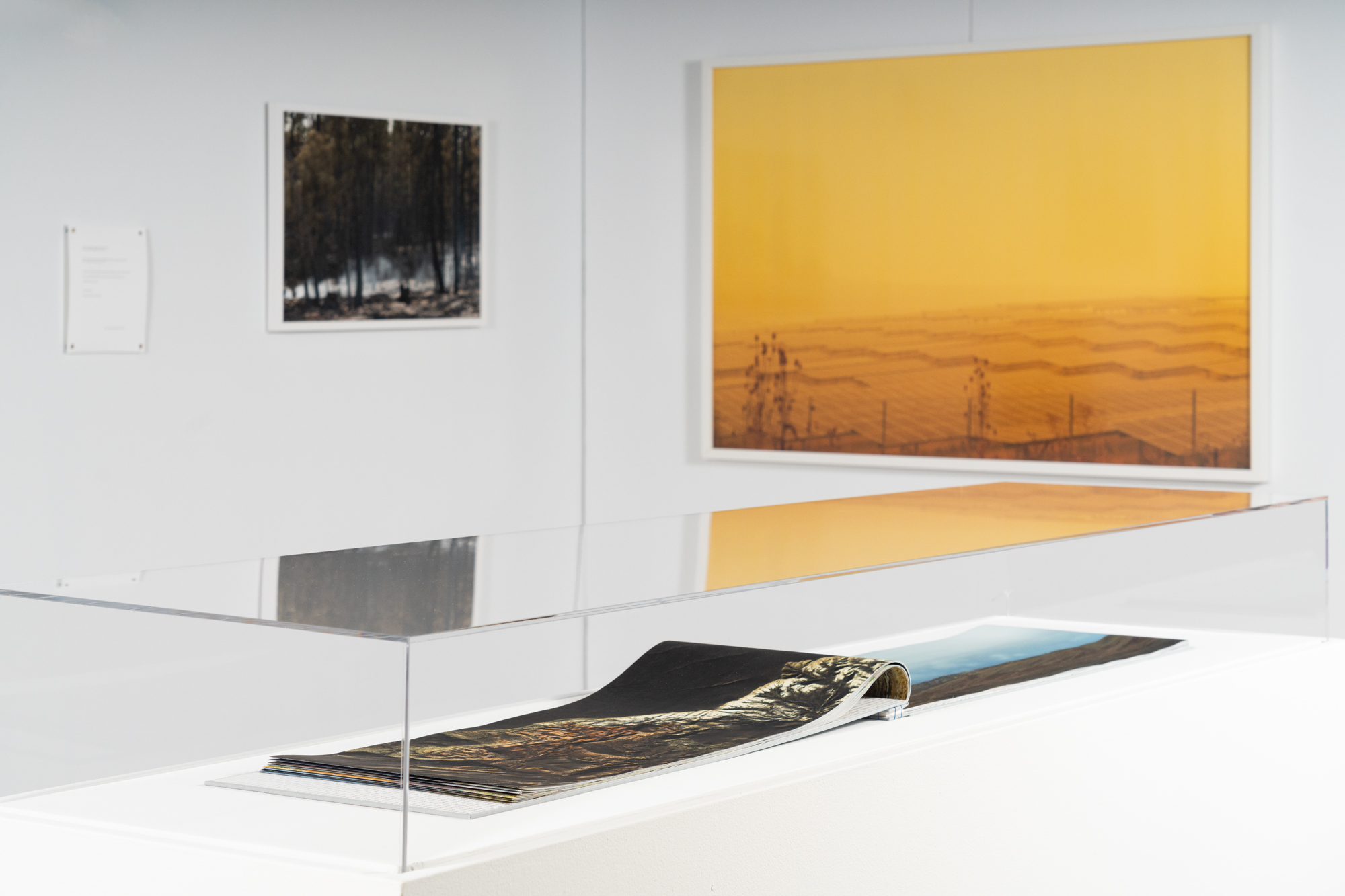
© Jessica L. Hays, Installation shot of “Horizon Line,” at The Center Galleries, Columbia College, Chicago, May 9 – May 20, 2023
Jessica’s work echoes the sense of loss and displacement that wildfires produce. There is a feeling of disconnection between human beings and the environment that needs to be addressed. As I have explained, these photographs do not idealize or aestheticize the flames and their destruction. This is not just a matter of personal grief; we as members of humanity must mourn together. She adds, “But in many ways, I wonder if any wildfire can truly be viewed as without human instigators at this point, given that human activities driving climate change have caused these fires to burn so much faster, hotter, and more frequently than they did previously.”
Jessica concludes: “Creating this work is a healing process for me, a response to the profound impact of climate change and wildfires on my life and the places I hold dear. Through my work, I confront the grief and transformation of these landscapes, aiming to evoke similar emotions in viewers. Many have expressed a sense of recognition and belonging through my work, finding words for the unspoken feelings of loss for places irrevocably changed by environmental shifts. By capturing the essence of various locations affected by these crises, I seek to foster understanding and empathy among those who may not directly experience these changes. As a woman working in the traditionally male-dominated field of landscape photography, my work is challenging norms and becoming a voice within this tradition. I also reflect on how women are often disproportionately affected by issues like poverty and the consequences of climate change. These considerations shape my perspective and drive me to explore these themes through my artistic practice. Ultimately, my creative process is a continuous cycle of absorption and reflection. Everything I encounter shapes my work, contributing to a fluid and ever-evolving artistic practice.”
Jessica Hays is a photographer and artist based in Montana and Chicago. Her intimate work draws on personal experiences to tackle mental health, landscape change, and loss. Grounded in the American West, she explores relationships between people and places and is deeply connected to one’s surroundings. Hays’ work aims to explore the interactions between psychology and climate change, investigating how landscapes affect the human psyche from trauma to restoration. Hays works in many processes, including handmade artist books, videos, and experimental photo-processes. Her work is shown nationally and internationally, published in various magazines and textbooks, and held in several public and private collections. She has lectured on mental health and climate issues at conferences, summits, and classrooms. Hays received her MFA in Photography from Columbia College Chicago and earned a BA in Film and Photography and a BA in Environmental Studies concurrently at Montana State University.
Find out more about Jessica’s work at https://www.jessicahaysart.com and Instagram:@jess_the_photographer.
Leonor Jurado is a visual artist based in Quito, Ecuador and Los Angeles, CA. Her work explores the photographic object using alternative materials and processes that address issues of precariousness and vulnerability in relationship to the body and nature. She has developed an academic career as a teacher and has exhibited, individually and collectively, in different parts of the United States and Ecuador. She holds a B.A from the University of Missouri, Kansas City, and an M.F.A in Photography and Fibers from the University of Missouri, Columbia, in the United States.
Find out more about Leonor’s work at http://leonorjurado.com/.
Posts on Lenscratch may not be reproduced without the permission of the Lenscratch staff and the photographer.
Recommended
-
Earth Month Photographers on Photographers: Jason Lindsey in Conversation with Areca RoeApril 21st, 2024
-
Earth Month Photographers on Photographers: J Wren Supak in Conversation with Ryan ParkerApril 20th, 2024
-
Earth Month Photographers on Photographers: Josh Hobson in Conversation with Kes EfstathiouApril 19th, 2024
-
Earth Month Photographers on Photographers: Leonor Jurado in Conversation with Jessica HaysApril 18th, 2024
-
Earth Month Photographers on Photographers: Sarah Knobel in Conversation with Jamie HouseApril 17th, 2024

